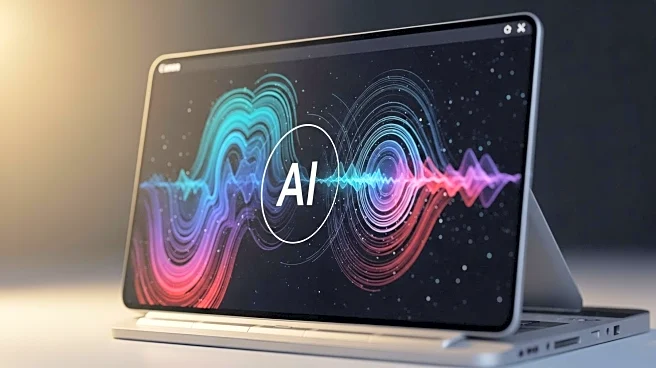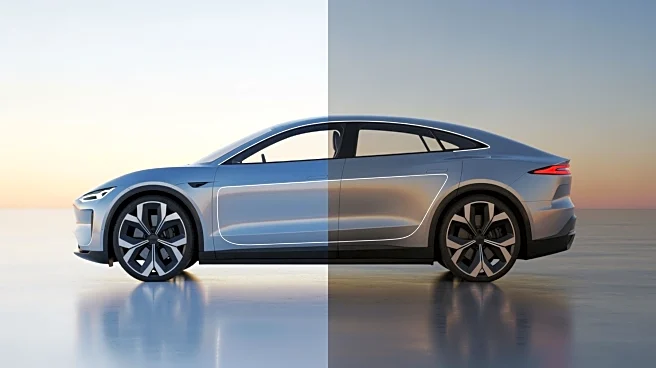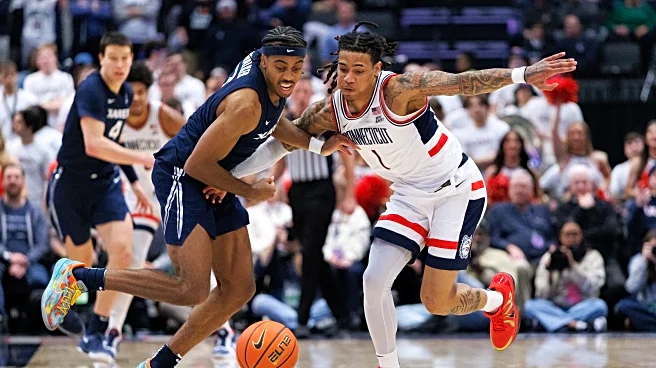What's Happening?
OpenAI has launched a new short-form video app called Sora, which allows users to create videos using artificial intelligence-generated clips of popular brands and animated characters. The app, available on iOS and requiring an invite code, has quickly risen to the top of Apple's App Store. However, experts warn that Sora could face numerous copyright lawsuits due to the use of copyrighted characters in user-generated content. Videos on the platform have featured characters from well-known franchises such as 'SpongeBob SquarePants,' 'Rick and Morty,' and 'Pokémon.' OpenAI CEO Sam Altman humorously acknowledged the potential legal risks by stating, 'I hope Nintendo doesn't sue us.' OpenAI has stated that it will work with rights holders to block characters from Sora upon request and respond to takedown requests.
Why It's Important?
The launch of Sora highlights the ongoing tension between AI technology and intellectual property rights. As AI tools become more accessible, media companies and brands are increasingly concerned about protecting their copyrighted material. The potential for copyright infringement on platforms like Sora could lead to significant legal battles, impacting how AI-generated content is regulated and monetized. Companies like Disney and Universal have already taken legal action against similar AI platforms, emphasizing the importance of safeguarding intellectual property. The outcome of these disputes could shape future policies and practices in the AI and media industries, affecting creators, rights holders, and consumers.
What's Next?
OpenAI plans to implement more granular controls for rights holders, allowing them to manage how their content is used on Sora. This approach aims to balance the interests of creators and rights holders while fostering innovation in AI-generated content. The company has also provided options for talent agencies and studios to opt-out of Sora, although this practice is not typical under current copyright law. As the legal landscape evolves, stakeholders will need to navigate the complexities of AI and copyright, potentially leading to new industry standards and regulations.










